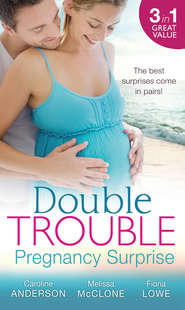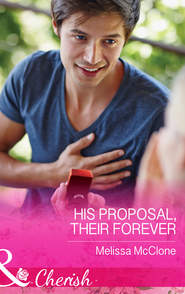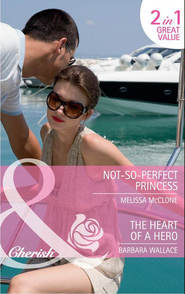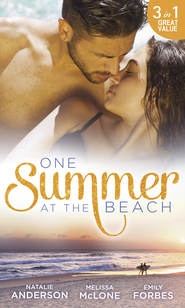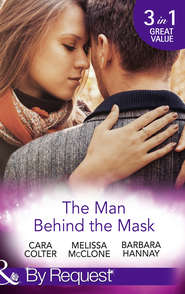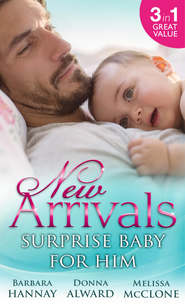По всем вопросам обращайтесь на: info@litportal.ru
(©) 2003-2025.
✖
Winning His Heart: The Millionaire's Homecoming / The Maverick Millionaire
Автор
Год написания книги
2019
Настройки чтения
Размер шрифта
Высота строк
Поля
“But then I remembered something my dad said to me,” David said thoughtfully. “My dad said you could never be guilty and happy at the same time. Or afraid and happy at the same time. That’s why he was such a stickler for doing the right thing. That’s what he saw as the stepping stones to building true happiness. And that’s what he would have wanted me to do. To choose happiness. And that’s what I want you to do, too.”
She stared at David. He could have said a million things, and yet the thing he had said was so right.
Despite herself, she shared something else.
“David?”
“Hmm?”
“I’m scared of happiness. Remember you said wishes are for children? I’m afraid that the things you wish for just set you up for disappointment. And heartbreak.”
They had arrived in front of her house, and he glanced at his and then, as if it were the most natural thing in the world, went and sat in his wet clothes on her front step. He patted the place beside him.
“It was awful, wasn’t it?” he asked.
And she was going to say “what?” as if she didn’t know what he was talking about, but she did know, and she could not bear to bring dishonesty between them.
She had known this time was coming when they would have to address the history between them.
And she had expected that exploration would be like there was an unexploded mine buried somewhere in the unexplored ground between them.
“Yes,” she whispered. “Being married to Kevin was awful in so many ways. I mean, there were good things, too, don’t get me wrong.”
“Tell me,” he said.
And she knew he didn’t mean the good things. She ordered herself not to, but she could not disobey the command in his voice.
And so she found herself telling him. Slowly at first, like water that was seeping out a hole in a dam, the steady, small flow making the hole larger until the water was shooting through it with force, faster and faster.
She told him about the late nights waiting for Kevin, not knowing where he was, about the terrible houses they had lived in and the bills not paid. She talked about working as a waitress and a cleaning lady, about babysitting children and raking leaves, trying to hold it all together long after she should have let it fall apart.
And the more she worked at holding it together the more Kevin seemed to sabotage everything she had done, lose interest in her, treat her shabbily, at first in the privacy of their own home, and then in front of other people.
“Sometimes,” she said, finally, “I feel relieved that he died.”
It should have been her biggest secret. But it wasn’t. There was one left, still.
She waited for him to react with horror to this revelation that she had never admitted out loud to anyone.
Instead, they sat silently on the front steps with the sun pouring down hot on their heads, drying their clothes so that the lemon stains and wrinkles would probably never come out. Her dog snoozing in her arms, Kayla was aware she did not feel judged at all.
There. They were out. Her shameful and most closely guarded secrets. It was like a mine exploding, but instead of feeling destructive, it felt like a relief.
Before it exploded she waited. And wondered. And every step was guarded. And every breath was held.
Suddenly it felt as if she could breathe.
And suddenly it felt as if she were free to walk across the field that was her memory without being caught in an explosion.
Instead of rejecting her, David put his arm around her shoulder and pulled her into the solidness of his body.
And Kayla, in that moment of shared strength and sunshine, realized it had not been so much Kevin she had withheld forgiveness from.
In fact, she had forgiven Kevin again and again and again.
Except when he had died, taking with him any chance that they would find their way, that the love she still had for him would somehow see them through, would fix things—then she had felt angry and beyond forgiveness.
Betrayed by his carelessness in a way she could no longer fix. But now she could see most of her anger was at her own powerlessness.
She realized that more so than with Kevin, it was herself she had never forgiven. She had never forgiven herself for her own bad choices, for making everything worse instead of better.
But there, with David’s arm around her shoulder, she felt strong and warm, and for the first time in very, very long, optimistic.
And not in a superficial way. Not about starting an ice cream business or saving a house from ruin. She felt changed in a way that went to her soul.
“Why did you marry him?” David asked, his voice hoarse with caring, knowing instinctively somehow there was one last thing she needed to tell.
She shuddered. The last secret. The thing no one had ever known. Not her parents. Or Kevin’s. Not her best girlfriend.
“I was pregnant.”
“Shoot,” he said softly.
“You would have been proud of him,” she said. “He wanted us to get married. He wanted to do the honorable thing.”
But wasn’t this also what she had to forgive herself for? That she had accepted his attempt at honor instead of love? That she had allowed it all to go ahead, when there had been a million signs that maybe it would have been better to let it go, even if there was a baby, maybe especially if there was a baby?
“I miscarried the baby a month after we were married. But I still thought I could save Kevin,” she whispered. “After that summer, when he changed so much, I thought I could save him.”
This was met with silence.
“Love conquers all,” she said with a trace of self-derision. “We’d only been together that way once. After that little girl drowned, he was in so much pain. I was comforting him. One thing led to another.”
There. Of all of it. That was the thing she had never forgiven herself for.
David’s hand found hers, and he squeezed, but then he didn’t let go.
“You knew,” she whispered. “You knew it was going to be a disaster. You knew Kevin was a runaway train that nothing could stop. You told me not to marry him.”
“After that little girl died, it was as if I started seeing Kevin for who he really was,” he said, his voice ragged with regret. “He was in pain after it happened. But it wasn’t about her. It was about how it was affecting him. He begged me not to tell the investigators that he hadn’t been paying attention that day.
“But I had to do what I had to do. And I could never see him the same after that. I didn’t see ‘carefree’ anymore. I saw ‘careless.’ I didn’t see ‘fun-loving.’ I saw ‘irresponsible.’ I didn’t see ‘charming.’ I saw ‘self-centered.’
“And still.” His voice cracked. “If he would have once expressed remorse for that day, I would have loved him all over again.”
His voice firmed and became resolute. “But he didn’t. It was always all about him. It gave birth to this cynicism in me that has never been altered. That people will always act in their own self-interest. Myself included. I’m sorry, Kayla. I’m sorry to talk about your husband that way.”
But despite the things they both had said, they sat there bathed in more than sunlight.






